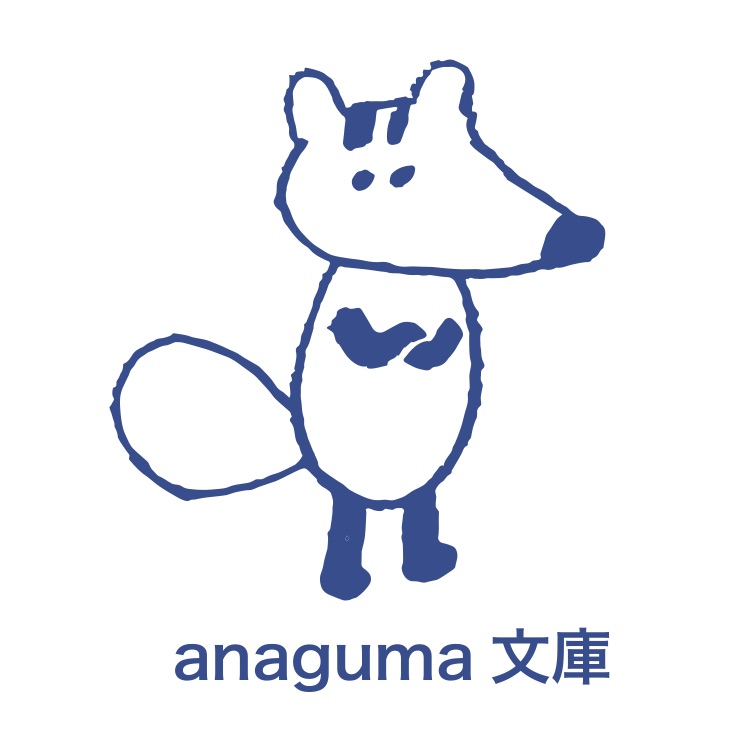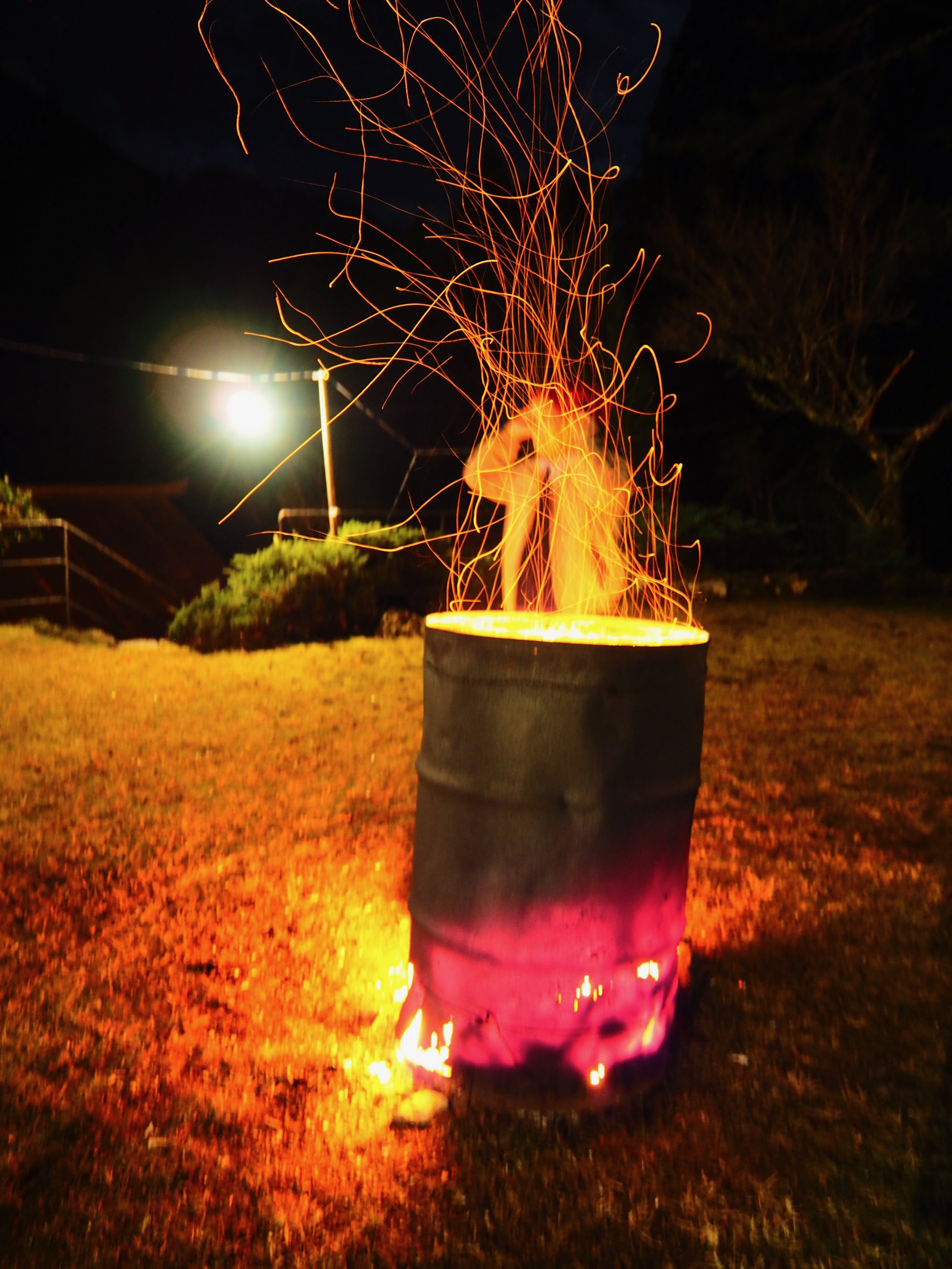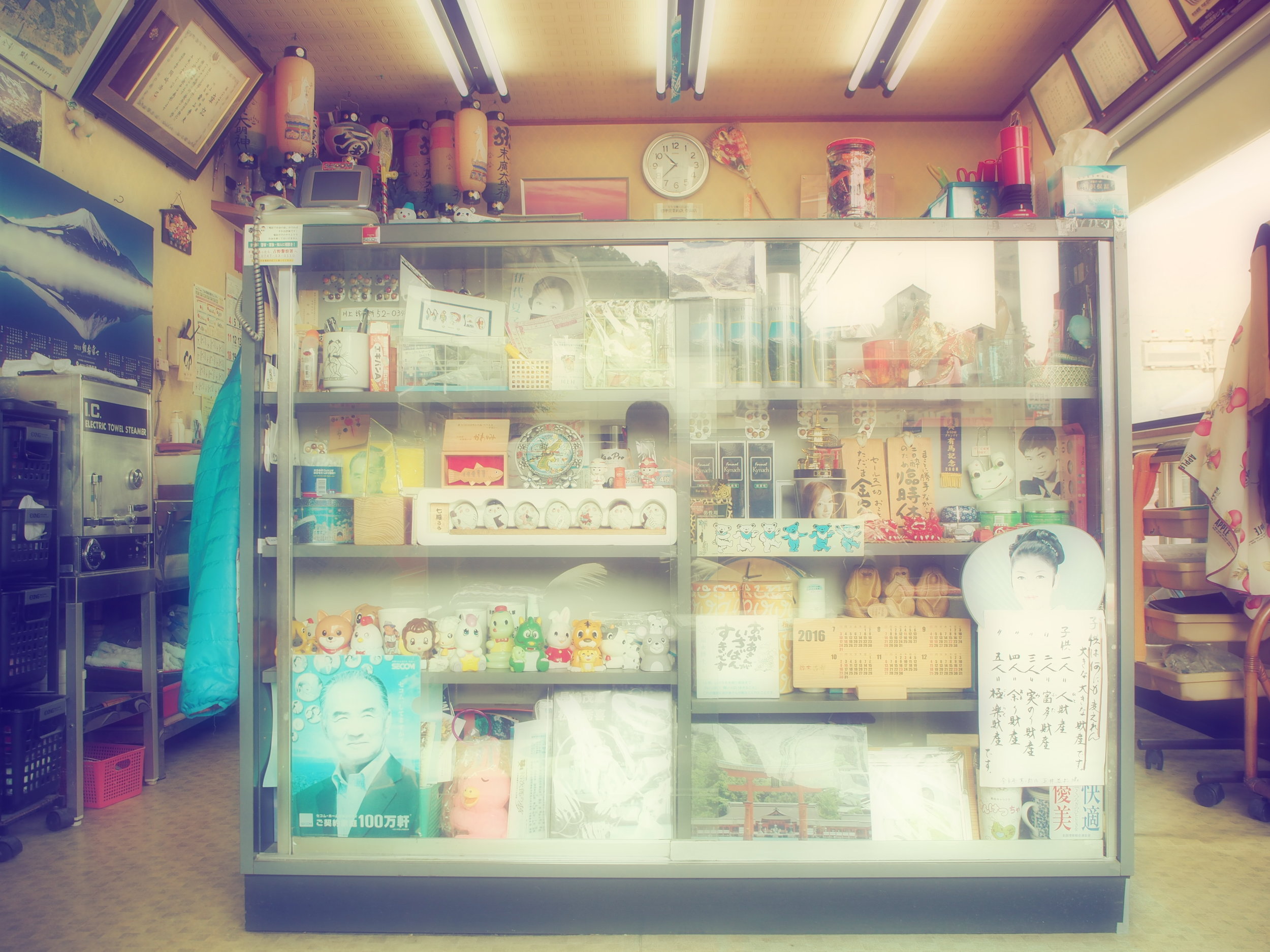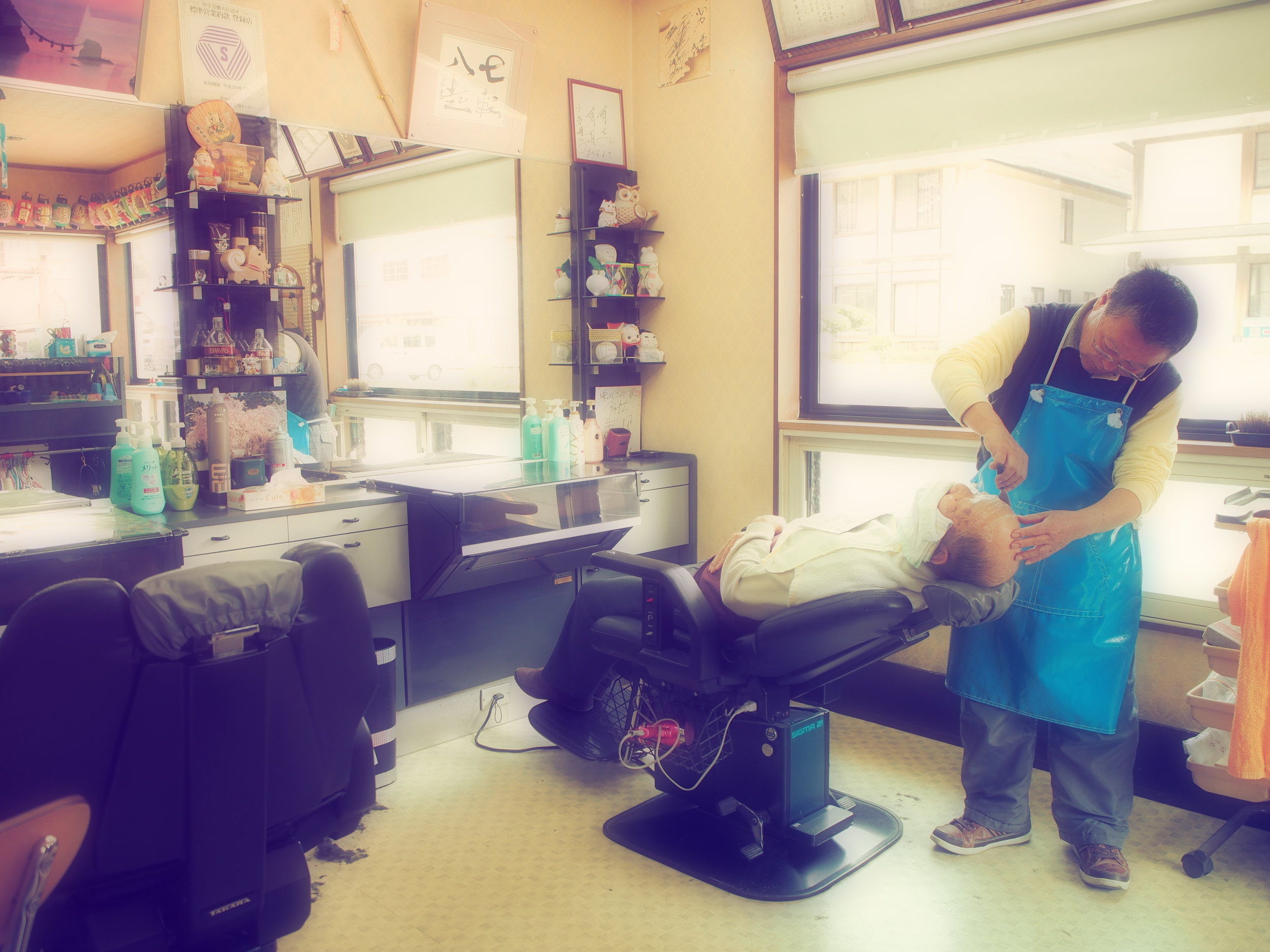(Please scroll down for the English version.)
三百段
山の上までの三百段を登り、最後の階段を静かに踏みながら大年神社へ上がった。石垣の上の森には、雄鹿が3頭いて、何かを食べていた。みんなは朝ごはんをやめて、頭を上げて、じっと僕を見つめた。10秒ほどそのままでお互いを観察していた。どこかの杉の木が朝の風に吹かれて揺れながらキーキーと長く鳴った。たしか、それは「木の立つ」音であった。僕は片手でスマホをゆっくり取り出し、写真を撮ろうとしたが、もう遅かった。山を登っている小さな白い尻尾しか撮れなかった。
まず、僕はお参りした。それから、その立派な枝角を考えながら、神社に落ちた枝や葉っぱを早速拾い始めた。そのうち、手が増え、ドラム缶の炎が高くなり、雑談とボロワーの音が「木の立つ」音を隠した。石の間の小さな葉っぱを取りながら、隣の人は「今日は今年の最後だから、綺麗にせなあかん。」と明るく言った。他の人は次の夜の初詣のために、電球を周辺に吊るし、鳥居に鈴と松竹梅をかけた。風雨にさらされた木の賽銭箱は湿気で膨張して、なかなか開けられなかった。いつしか2時間が過ぎ、最後にドラム缶の炎を囲みながらみんなで温かい番茶をいただいた。
次の夜、懐中電灯で三百段を照らしながら、僕らは大年神社までゆっくり登った。神社の周辺に吊るした電気がすでに点いていて、海の重い暗闇に向かっている灯台のように感じた。谷の向こうの山は奥深い影になり、石炭色の空に負けなかった。神主さんは鯛、果物、野菜、米、塩、水のお供え物を用意した。「今日は温い、雨上がってよかった」と言い合いながら、ドラム缶を囲んで顔が炎で赤く照らされた。12時を回ってから、僕はお参りして、みなさんと一緒にお神酒をいただいた。その後、階段を上がった人は何人もいた。長く話せなかった、こういう場所でこういう時にみなさんに会えて嬉しかった。
ドラム缶の炎が小さくなり、寒くなる前に早速みんなで片付けた。周辺の電気を消し、懐中電灯を点け、凍結した階段を慎重に下った。山の暗闇のどこかから、昨日の雄ジカはこの風景を垣間見ることができただろう。
300 Steps
I climbed the 300 steps to the top of the mountain, and stepped quietly up the last set of steps to Otoshi Shrine. There were three adult bucks in the forest above the stone wall, eating something. They all paused from their breakfast, brought their heads, and looked straight at me. We observed each other just like that for about ten seconds. A Japanese cedar tree somewhere was blown by the morning wind, slowly creaking as it swayed. I think they call that the sound of a “standing tree”. I slowly pulled out my smart phone with one hand and tried to take a photo, but it was too late. All I got were the small white tails running up the mountain.
First things first, I paid my respects to the shrine. After that, I thought about those impressive antlers as I got to work picking up the branches and leaves from the shrine grounds. More hands arrived in due time, the fire in the rusted oil drum grew higher, and the sounds of conversation and leaf blowers hid that of the “standing tree”. As we picked the small leaves out of the rocks, the person next to me cheerfully said, “Today’s the last one for this year, so we need to make sure it’s clean.” In preparation for the first prayers the following evening, others strung up light bulbs around the perimeter, or attached a bell and a combination of pine, bamboo, and plum leaves to the gate. After being exposed to the elements, the wooden donation boxed had expanded due to moisture, and wasn’t able to be opened. Two hours passed before I knew it, and we all crowded around the drum can fire and drank warm tea when we were done.
The next night, we illuminated the 300 steps with our flashlights as we slowly climbed up to Otoshi Shrine. The lights we had strung around the shrine were already on, and they felt like a lighthouse facing the heavy darkness of the sea. The mountain on the other side of the valley was now a deep shadow, and was no match for the coal-colored sky. The reverend prepared the bream, sake, fruit, vegetables, rice, salt, and water as offerings to the shrine. “It’s warm tonight, and it’s luckily it stopped raining,” we said to one another as we crowded around the drum, our faces reddened by the glow of the flame. Once it passed midnight, I paid my respects to the shrine and joined everyone in drinking the sake offered to the shrine. Quite a few people came up the stairs after that as well. We couldn’t talk very long, but I was happy to see everyone in such a place at such a time.
The flame in the rusted oil drum grew smaller, and we cleaned everything up before it got too cold. We turned off the perimeter lights, turned on our flashlights, and carefully descended down the frozen steps. I wonder if yesterday’s bucks could catch a glimpse of this scene from somewhere in the darkness of the mountain.








